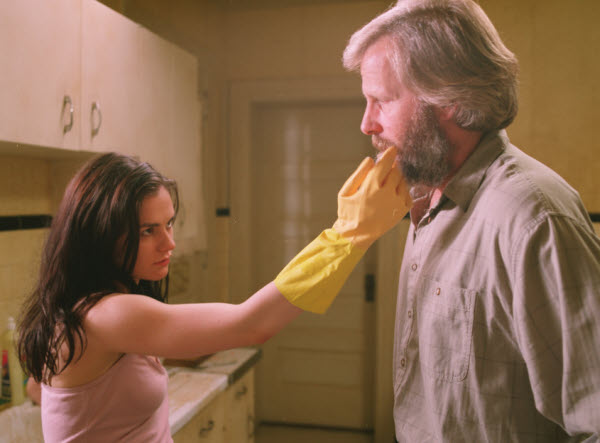Movie review by Greg Carlson
Following a script writing team-up with Wes Anderson on “The Life Aquatic with Steve Zissou,” filmmaker Noah Baumbach delivers his strongest feature film to date in “The Squid and the Whale,” a semi-autobiographical period piece fictionally recounting the fallout from the divorce of his parents. Set in 1986, “The Squid and the Whale” brushes aside its many anachronisms, favoring a comfortable, laid back, and lived-in approach that recalls the work of several of Baumbach’s French New Wave heroes. Smart, funny, and painful all at once, “The Squid and the Whale” is one of 2005’s best movies, and should not be missed.
Filled with visual, musical, and linguistic motifs, “The Squid and the Whale” presents itself immediately as a labor of love. Baumbach’s memorable characters demonstrate a tightrope walker’s balance between astonishing cruelty and a deep facility for well-meaning honesty. Several characters manage to describe the presence of this status by scolding one another with the line “Don’t be difficult.” The Berkmans might say the most horrible things to each other, but only because they lack the ability to express themselves in the less transparent ways used by so many less interesting families.
While many factors contribute to the disintegration of Joan and Bernard Berkman’s marriage, Baumbach emphasizes the crossing trajectories of their careers. Vain, selfish Bernard (a sensational Jeff Daniels) cannot get his most recent work published, and browbeats everyone around him. Daniels is wonderful in the role, teasing out every detail of Bernard’s embarrassing self-pity and elitist contempt for the “philistines” he warns his two sons to avoid (and avoid becoming). Joan (an equally terrific Laura Linney) watches her own star ascend even as Bernard’s flames out; a piece in The New Yorker merely seals the deal.
Older son Walt (Jessie Eisenberg) sides with Bernard and unleashes his frustration and fury on his mother. Troubled little Frank (Owen Kline) prefers the warmth and comfort offered by Joan. Things become more complicated when Joan starts hanging out with Frank’s tennis instructor (a very funny William Baldwin), and Bernard offers the spare room in his new dump to a stimulating and aggressive writing student (a coquettish Anna Paquin). Baumbach’s biting wit is used to great effect throughout the movie, and all the major roles include delicious opportunities for the actors.
Baumbach unflinchingly mines some dark-hearted themes, including the pettiness attending a split-up and the confusion of adolescent sexuality. Walt’s slavish adoration of Bernard leads to unfortunate romantic choices, and Frank numbs his own pain with alcohol, colorful profanity, and creative masturbation. The filmmaker retains his comic gifts, however, and “The Squid and the Whale” bursts with hysterical allusions, from “Short Circuit” versus “Blue Velvet” to misinterpretations of “Breathless” to dismissals of the “lesser work” of Fitzgerald and Dickens. The title of the film, a reference to the Museum of Natural History’s frightening “Clash of the Titans” diorama, goes to work on several levels. Even if the obvious reading is a metaphor for the struggle of Joan and Bernard’s divorce, Walt’s eye-opening epiphany that closes the film allows us to see the fearsome behemoths as father and son.
